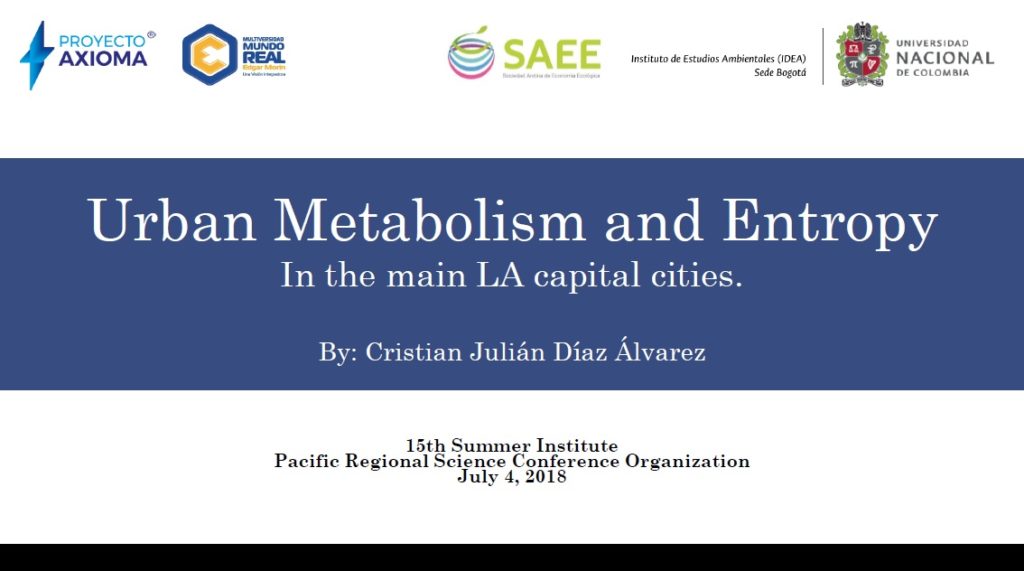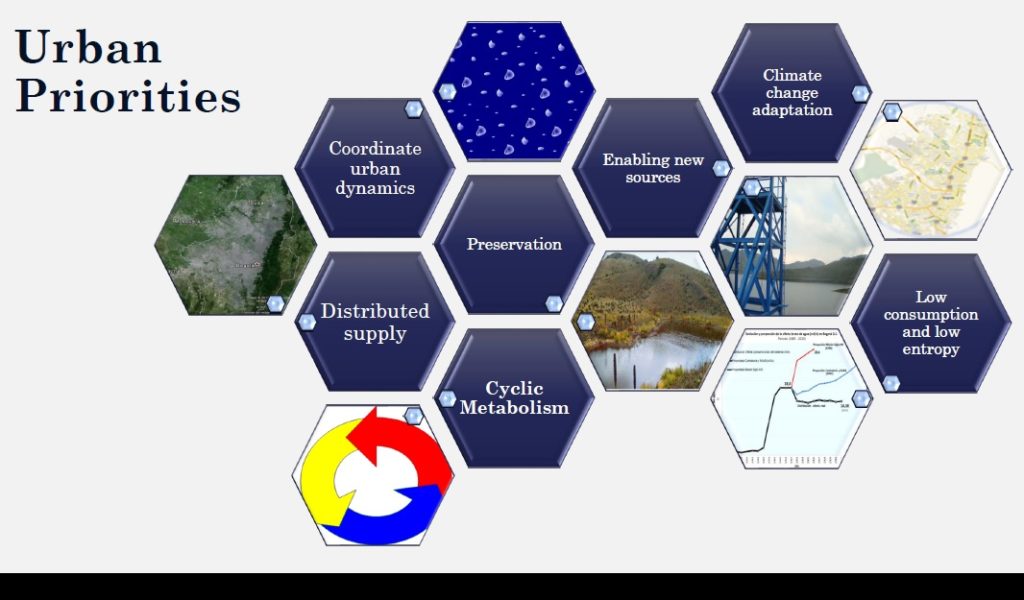by Cristian Julián Diaz Álvarez
Presented at the 15th Summer Institute of the Pacific Regional Science Conference Organization (PRSCO) at the Pontificia Universidad Católica del Perú in the city of Lima. July 4 to 6, 2018


Abstract:
As complex systems, capital cities in South America have lived a sort-of urban adventure, defined by the initial conditions of their foundation and the background of native indigenous populations. The evolution through great periods of time (the Colony, the Republic, the XX Century City and the Extended Metropolis) has also shaped the dynamics of those cities. This historical process has consolidated these capitals as nodes of capital, wealth and –paradoxical- poverty, as well as nodes of local, regional and global connectivity. This has required a significant energetic demand to maintain pseudo-stable statuses in conditions away from equilibrium.
This thermodynamic achievement is based in a continuous and growing flow of materials and energy –within a changing and diverse economic, social, political and natural context- that is progressively producing larger amounts of entropy, reflected in the pollution in air, water, soil and biota. This reality of the urban structure in the current non-equilibrium conditions can be represented from the perspective of the sciences of complexity and ecological economics, specifically from the concept of urban metabolism and entropy.
A comparative study of urban metabolism was carried out between the cities of Bogotá, Lima, Santiago de Chile and Buenos Aires for the years 2000, 2010 and 2015, regarding the consumption of water, energy (fuel and electricity) and food, as inputs to the system. The generated entropy (discharges, emissions and solid waste) was also analyzed.
This regional Latin American study shows that capital cities in emerging economies –aside from their cultural and geographical differences- share a similar metabolic factor that is observed in a growing aggregate consumption and a natural increase in entropy. This urban unsustainability is exacerbated by the neoliberal policies of indefinite growth, but is outshined by the availability of capital and the dominant technocratic optimism.
